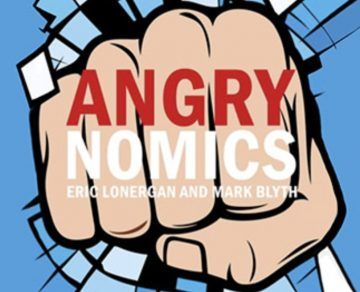Eric Lonergan in Philosophy of Money:
 Chris Dillow writes perhaps the most interesting economics blog I know. Its scope is considerable, and despite his declaration of bias – he self-identifies as a ‘marxist’ – he is typically empirical. His recent review of Angrynomics, a book I co-authored with Mark Blyth, raises a fundamental question which I have been reflecting on. It is encapsulated by the rhetorical question with which Chris ends his review:
Chris Dillow writes perhaps the most interesting economics blog I know. Its scope is considerable, and despite his declaration of bias – he self-identifies as a ‘marxist’ – he is typically empirical. His recent review of Angrynomics, a book I co-authored with Mark Blyth, raises a fundamental question which I have been reflecting on. It is encapsulated by the rhetorical question with which Chris ends his review:
“What chance do we have of such reform, given that our existing institutions serve extractive capitalism so well by diverting anger away from its proper target?”
Some context may help clarify this question. In Angrynomics we make a distinction between two forms of public anger: moral outrage and tribal rage. It is important to be clear that these are not subjective classifications that Mark and I have plucked out of thin air. They are empirically distinct phenomena. To observe their existence requires no assumption of relative merit. There seems to be two observable forms of anger which humans express publicly: anger at perceived injustice which I label the anger of angels, and the anger of tribal fans, or the anger of devils. To observe these forms of anger in play all that is required is a trip to a football match (there is always an angry minority) or attendance at an extinction rebellion protest.
In his review, Chris adheres to this typology of anger but argues that ‘extractive capitalism’ has hijacked tribal rage to serve its interests, and subdue the potential of legitimate indignation to create real reform.
More here. And here is a reply from Chris Dillow to this.
